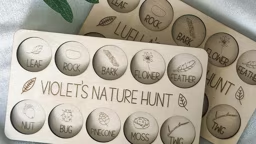
Everything You Need to Know About Leptospirosis
From tending the gardens to wading in your favorite fishing hole, every time you come in to contact with the water you could be inadvertently exposing yourself to a rare and potentially fatal waterborne illness known as leptospirosis.
Leptospirosis is an unseen bacteria that lurks in waters throughout the year, but the odds of people contracting it go up in the summer months because they tend to head to nearby lakes, rivers, and streams. The microscopic bacteria is transmitted to people who are exposed to it though infected animals, such as rats, livestock, and even family pets.
Cabin Life sat down with a public health analyst with the Centers for Disease Control and Prevention to better understand how people come into contact with the disease, and what to do if they are exposed.
See also Berenstain Boating: Stay Safe on the Water
How common is Weil’s disease during the summer months, and what are the most common ways it is transmitted?
Leptospirosis is most common in temperate climates like the tropics. It is relatively uncommon in the continental U.S. Most of the 100 to 150 cases of leptospirosis reported each year in the US occur in Puerto Rico and Hawaii, although cases in the continental US do occur.
Leptospirosis most often affects people who work outdoors or with animals, or those who take part in recreational activities involving water or soil, like swimming, boating, and gardening. There are more cases in the summer because people engage in activities that put them at greater risk of exposure to leptospirosis. After floods or heavy rains, anyone who has been in contact with floodwater, contaminated freshwater (rivers and streams) or soil could be at risk for infection.
People can get leptospirosis when they have contact with water or soil containing urine or other body fluids from infected animals or if they directly touch the urine from an infected animal. A variety of animals can spread leptospirosis, including rodents, dogs, livestock, and wildlife.
What should someone do if they think they are infected?
After floods and heavy rains, anyone who has been in contact could be at risk for infection. Anyone who thinks they might have caught leptospirosis should see a doctor. Leptospirosis can be treated with antibiotics, as early treatment with antibiotics can lessen the severity of the disease. Without treatment, leptospirosis can lead to kidney or liver failure, meningitis, difficulty breathing, bleeding and even death.
What are the most frequently seen signs and symptoms?
In humans, Leptospirosis can cause a wide range of symptoms, however many of these symptoms can be mistaken for other diseases. The time between a person’s exposure to a contaminated source and becoming sick is two days to four weeks. Illness usually begins abruptly with fever and other symptoms.
Leptospirosis may occur in two phases. The first phase comes with fever, chills, headache, muscle aches, vomiting, or diarrhea. The patient may recover for a time but become ill again. If a second phase occurs, it is more severe and reaches the Weil’s disease phase. Symptoms include jaundice, diarrhea, abdominal pain and can develop into kidney or liver failure or meningitis, and even death from heart, respiratory, or liver failure.
In general, illness lasts from a few days to three weeks or longer and is treated with antibiotics like doxycycline or penicillin. Without treatment, recovery may take several months.
See also Dog Drinking From Lake: Is it Safe?
When does the risk of infection drop?
As summer turns its way to fall and people begin to spend less time outside, we can expect to see cases of leptospirosis begin to drop off in the continental US. As you tend your gardens and winterize your cabins, be sure to take extra precaution and be aware of any potential contact you may have with infected areas.










